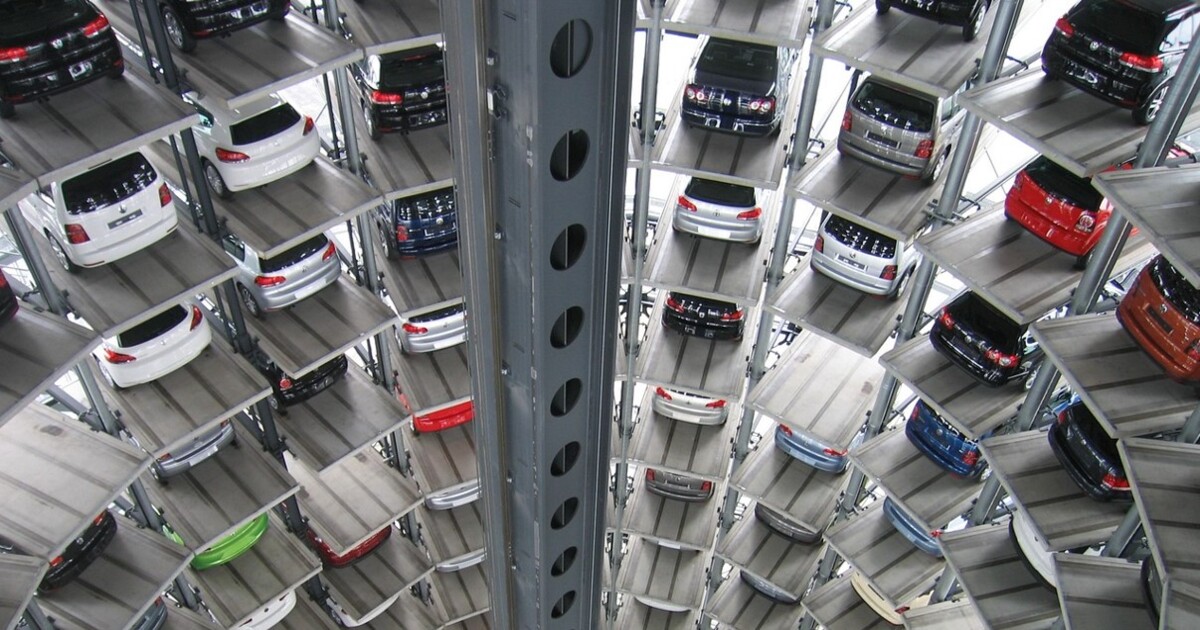Stephan Richter On NPR: Could Trump’s Comments About German Carmakers Have Sway?
Trump wants German carmakers to “become American car companies.” How would that work exactly? A conversation with Marketplace Morning Report’s David Brancaccio.
October 26, 2024

David Brancaccio:
Germany’s Mercedes puts together some vehicles in Alabama and South Carolina; VW of Germany — Chattanooga, Tennessee; BMW — Greer, South Carolina. But not every German car or SUV is made here.
How does the German car industry process something like what the former president said?
Stephan Richter:
Well, it’s an attractive offer — especially if you look at the situation in China, where they’ve been totally dependent on high sales, all of these car companies.
And they’re losing out badly. Their market shares are declining. Chinese customers find those cars that the Germans produce no longer up to snuff.
And in that Trump audio that you just played, there were lots of hoorays, so at least American customers still seem to like German car companies. So that’s a good sign to begin with.
David Brancaccio:
That’s interesting. So, if someone’s waving an incentive of sorts, some of these German car makers might embrace it. I mean, can’t they just sell their vehicles in Europe, a vast market?
Stephan Richter:
The economy in Europe is very slow. We know that the economy in the United States, despite all the political hooplas, will remain relatively strong for the next 20 years, which one cannot assume for Europe. That’s the first thing.
The second thing is that productivity in Europe, unlike in the United States, is also very low. VW in Germany has lost about 20% of productivity between 2019 and 2022.
And that is, to a large degree, a function of union rules and of a company being organized mostly for the benefit of making jobs permanent at all times, regardless of what the market does. That’s not a good way to run a company.
And for that reason, it would be quite attractive to shift operations more to the United States.
David Brancaccio:
All right, but that’s a big-ticket item — either expanding a factory in the United States or building a fresh one. Do you think German car companies be willing to take that kind of plunge, given all the money it would cost?
Stephan Richter:
It will be difficult, you are absolutely right. On the other hand, they’re getting more and more desperate in their home market. So it is a mixed situation.
Of course, one can never really rely on Trump if — he gets elected — and whether he really means what he said.
Suffice it to say that the situation here in Germany for the car industry is so desperate that I think they’d be willing to grab at any straw, even considering the fact that the U.S. car market can’t exactly be called undersaturated.
All in all, despair reigns here, and that’s a big change compared to the last four or five decades when German carmakers ruled the universe.
Editor’s note: This interview was conducted by David Brancaccio, the host of the Marketplace Morning Report, with The Globalist’s Stephan Richter. It was broadcast on National Public Radio all across the United States on October 17, 2024. To view this feature on the Marketplace website and listen to the 3:28 minute audio of the interview, click here.
Takeaways
Trump’s offer of having German car companies build plants in the U.S. is attractive — especially if you look at the situation in China, where German car companies have been totally dependent on high sales.
German car companies in China are losing out badly with their market shares declining. Chinese customers find cars that the Germans produce no longer up to snuff.
The economy in Europe is very slow. We know that the economy in the U.S., for all the political hooplas, will remain relatively strong for the next 20 years, which one cannot assume in Europe.
Productivity in Europe is very low. VW in Germany lost about 20% of productivity between 2019 and 2022. To a large degree, that is a function of union rules and of a company being organized mostly for the benefit of making jobs permanent — regardless of what the market does.
The situation here in Germany for the car industry is so desperate that I think they’d be willing to grab at any straw. That’s a big change compared to the last four or five decades when German carmakers ruled the universe.
Author
The Globalist
Read previous

Global Autocracy
Trump’s Rubicon
October 26, 2024